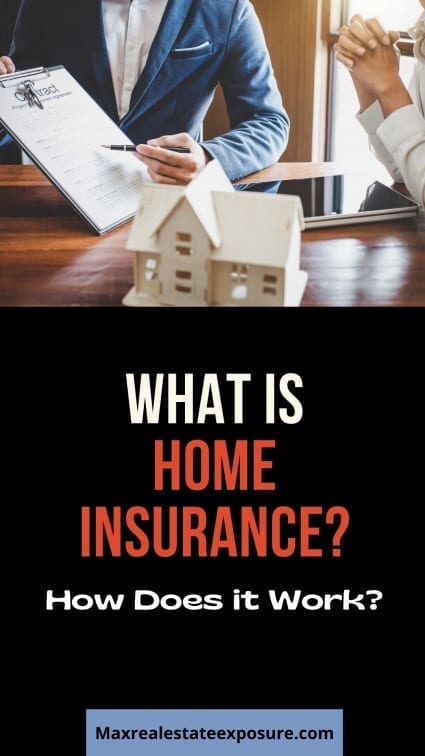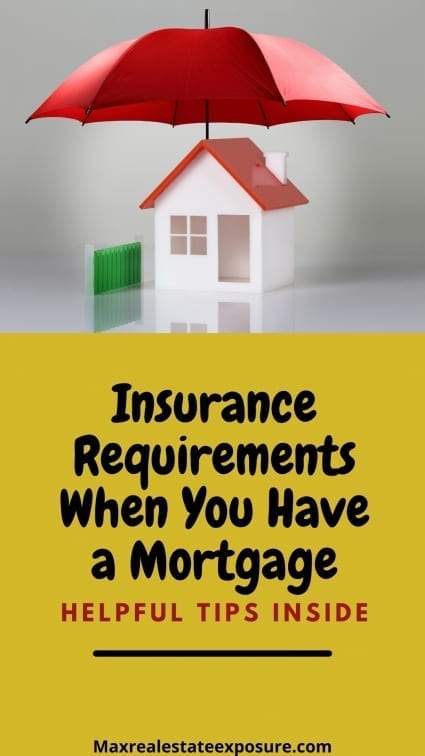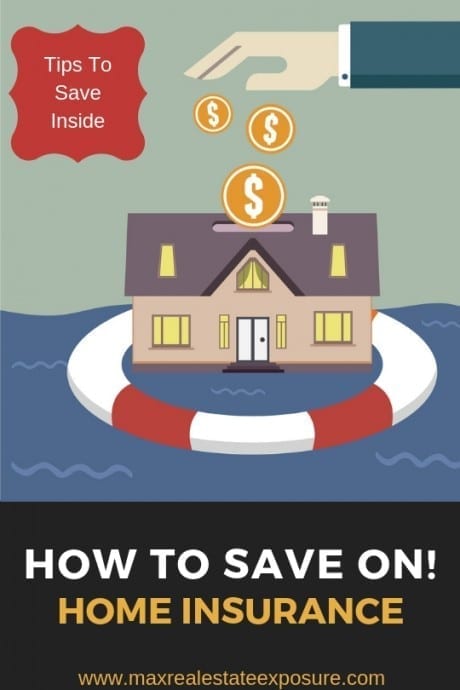What is Home Insurance?
 Do you know what home insurance is and how it works? The idea of homeowners insurance might seem simple, but it can be easily misunderstood. We’ll be taking a look at everything you need to know about home insurance.
Do you know what home insurance is and how it works? The idea of homeowners insurance might seem simple, but it can be easily misunderstood. We’ll be taking a look at everything you need to know about home insurance.
Homeowners insurance is a way of covering you against loss or damage that occurs to your property. It makes sure you have insurance protection if there is damage done to the furnishings within your home, as well as other possessions you own.
Home insurance can also cover you against accidents that happen on your property. Whether you will be buying a traditional home, townhouse, modular home, or even shipping container housing, having home insurance is one of the best investments you can make.
Homeowners Insurance Coverage
This type of insurance will normally cover the policyholder on four types of loss. The insurance will cover you for damage to the outside of your home, the inside of your home, damage or loss of your belongings, and injuries on the property.
Though when the homeowner makes a claim on their insurance policy for any of these types of loss, they will be expected to pay a deductible. These deductibles will vary depending on the terms of your insurance policy and are an out-of-pocket cost if you need to make a claim.
The higher your deductibles’ cost, the lower your monthly or annually payable premiums will likely be. Though you have to claim on the policy, you could need to pay a significant amount of money out-of-pocket.
These are things you can expect your coverage to protect:
- The dwelling.
- Other structures such as outbuildings, sheds, and fences.
- Your property inside the home.
- Liability coverage which pays in the event you injure someone due to neglect.
- Medical payments if someone gets injured on your property.
- Living expenses in the event something happens and your home needs repairs.
Home Insurance Liability Limits
Every house insurance policy will have a limit of liability. This is the maximum amount of coverage the homeowner has should something go wrong.
Typically, this amount is set at $100,000, though if the homeowner needs more coverage than this, a higher limit can be available. If more coverage is required, premiums are likely to rise accordingly.
If a claim is made on the insurance policy, the liability limit sets out how the cash will be available. The terms of the liability limit will set out the percentage of coverage available to replace items lost or damaged, repair the property, and pay for the homeowner to live somewhere else while any repair work is being carried out.
The Limits of Liability
Generally, anything that is considered an act of god or acts of war isn’t covered by insurance. This will mean that homeowners insurance policies don’t normally cover severe weather or earthquakes. You will normally find that even the most basic insurance policies protect homeowners should their homes be hit by a hurricane or tornado.
However, for homeowners that live in areas of the country that are more likely to suffer from these extreme conditions, insurance is still available. Special coverage is normally available to people who are more likely to suffer from these natural disasters at an extra cost.
Insurance Requirements When you Have a Mortgage
 Lenders like to know that you have sufficient insurance coverage when you apply for a mortgage. If you don’t have insurance coverage, and the worst were to happen, there is a lender risk. To avoid this situation, lenders can add an insurance policy cost to the monthly payments if the homeowner does not already have sufficient coverage.
Lenders like to know that you have sufficient insurance coverage when you apply for a mortgage. If you don’t have insurance coverage, and the worst were to happen, there is a lender risk. To avoid this situation, lenders can add an insurance policy cost to the monthly payments if the homeowner does not already have sufficient coverage.
You can obtain house insurance through your lender if you wish, but you may find that you’ll get a better deal by arranging your own insurance. Insurance payments are typically included in monthly mortgage payments.
The lender will then place the amount of the premium that is for the insurance into an escrow account until the insurance bill is due to be paid. This makes sure that insurance premiums aren’t missed, and courage remains continuous.
Is Homeowners Insurance the Same as Mortgage Insurance?
No, PMI or private mortgage insurance has nothing to do with house insurance. A home insurance policy is different from mortgage insurance that only protects the lender against the homeowner’s failure to pay.
Mortgage insurance is normally required when the borrower is unable to pay a 20% down payment. Homeowners insurance protects the borrower, and mortgage insurance protects the lender, though the borrower will pay both premiums.
Is Home Insurance the Same as a Warranty?
A home warranty should pay for repairs or replace systems within the home if they go wrong. This differs from insurance as it isn’t required when getting a mortgage and will cover things that will break or fail in the home through normal usage. Homeowners’ insurance doesn’t cover you for things like this.
Types of Homeowners Insurance
There a few types of homeowners insurance. They are referred to as policy forms. The various kinds of homeowners insurance provide different coverage levels so you will want to know the difference.
The most common form of home insurance is what’s called HO-3 insurance or “special form”. This kind of insurance accounts for the vast majority of policies in the US according to the National Association of Insurance Carriers. The HO-3 covers damage to your home except for floods or earthquakes.
This kind of policy will only cover your possessions from certain perils including theft, vandalism, riots, smoke damage, fire or lightning damage, hail or windstorms, volcanic eruptions, damage caused by vehicles, falling objects, snow or ice, overflowing water from things like plumbing or appliances, freezing of systems, or sudden damage from a power surge.
The most comprehensive coverage is what’s known as an HO-5 policy. A much smaller percentage of homes have an HO-5 policy. This kind of insurance coverage is usually reserved for impeccable homes in low-risk areas. Many insurance carriers will not even offer it.
The last forms of insurance are HO-1 and HO-2. These policies are far less common. HO-2 insurance will cover your property for the items mentioned above. HO-1 will cover even less and is known as a bare-bones homeowners insurance policy.
What Is Typically Not Covered By Homeowners Insurance
- The loss of power
- Government actions including going to war
- Neglect
- Nuclear hazards
- Landslides
- Earthquakes
- Sinkholes
- Flooding including sewer or drain backups
- Mold or other fungus growth
- Infestations by birds or other vermin.
Depending on where you live it may be possible to purchase additional coverage for some of these issues.
Home Insurance Companies
 One of the most asked questions is who are the best home insurance companies? There are quite a few top-rated insurance companies.
One of the most asked questions is who are the best home insurance companies? There are quite a few top-rated insurance companies.
The following are some of the most well-known:
- Progressive Home Insurance – here is how you can get home insurance from Progressive.
- Geico – here is how you can get home insurance from Geico.
- State Farm – this is how to get home insurance from State Farm.
- USAA – here is how to get homeowners insurance from USAA.
- Allstate – this is how to get home insurance from Allstate
- Travelers – here is how to get home insurance from Travelers.
- Liberty Mutual – here is how to have home insurance from Liberty Mutual.
- Nationwide – here is how to get homeowners insurance from Nationwide.
You can click on the link for each of these home insurance companies and be taken directly to their website for more information. When seeking home insurance quotes, it makes sense to speak with multiple insurance providers.
Which home insurance company is the best is often based on experience. If you have been using a specific home insurance provider for many years and have been happy with them, it will probably make sense to stick with them.
Some folks seek out cheap home insurance, and that might not be the best course of action to take. Make sure you know exactly what you are getting for your money.
You will never want to be caught short on coverage if there is a necessary insurance claim.
Home Insurance Near Me
While all of the above-mentioned insurance companies are top homeowners insurance providers, you may want to look for a company that is close by. One of the best ways of finding a home insurance company nearby is to do an online search.
I would recommend home insurance near me as a search term. When doing this search, you’ll end up seeing all of the home insurance companies that are near your address. Even though you’re looking for an insurance company nearby, it will still make sense to seek multiple home insurance quotes.
What Does Home Insurance Cost?
There will be no clear, cut, and dry answer for what home insurance costs. There are far too many variables that go into giving a homeowners insurance estimate.
Some of the variables that will influence home insurance cost include the size of the home, what it would cost to rebuild, the amount of coverage, the area in which you live, how much your deductible will be, items that create risks like a pool, the areas fire protection rating, distance from a fire hydrant, and other things like whether there is a security system or are bundling coverage.
This is why getting multiple quotes for homeowners insurance is wise.
How to Save on Homeowners Insurance
 How do I save on home insurance?
How do I save on home insurance?
Working as a Realtor for the last three decades, one of the questions home buyers will often ask me is if I know ways to save on a homeowners insurance policy. Questions like these are relatively common. Everyone likes to save a few bucks whenever they can.
Below you will see some of the best home insurance savings tips that will help bring down the costs of your insurance policy.
There are a couple of things you should be aware of when it comes to property insurance. When purchasing a home in Massachusetts and procuring a loan through any mortgage lender, one of the requirements will be to get homeowners insurance.
There are no mortgage companies or banks that I know that will give someone a loan unless their home is insured. Not granting a mortgage without insurance makes perfect sense, as the lender is the property owner until the mortgage is paid off and discharged.
When you sign all the loan documents at the closing, you will also come to find out that the lender will have the option of taking legal action against you if you do not keep your home insured.
The bank is allowed to require you to protect the property for the dwelling’s replacement cost but no more than that.
If you are fortunate enough not to get a mortgage for your home purchase, there is no law requiring you to have insurance coverage, although it would be downright foolish not to.
Considering a house is usually one of the most significant assets you have, it makes perfect sense to have homeowners insurance.
Like Real Estate Title insurance, the moment you don’t have it is when it comes back to bite you!
Homeowners Insurance Savings Tips
More than likely, anyone who owns a Massachusetts home or anywhere else for that matter wants to make sure that they are well protected in the event they need to call on their home insurance policy to bail them out of a precarious situation.
On the other hand, most people don’t want to overspend on insurance when they don’t have to. Let these home insurance savings tips help keep more of your hard-earned money in your pocket without making any sacrifices in the coverage you should have! The following tips will allow you to save money on your home insurance.
Bundle Your Insurance Protection With The Same Company
One of the smartest avenues to save on your homeowner’s insurance premium is to bundle your coverage with other property you may have insured, such as a car or boat. Nearly every insurance company will give you a discount for insuring both your home and car with them.
If they don’t, you should be finding a different insurance company! Without a doubt, this is one of the most often used home insurance saving tips that can save you a bundle of money over time.
Since most people have owned a car before a home, you should think about trying where you currently get your car insurance protection for a rate quote. Of course, there is no guarantee that using your current firm would give you the best price, but it is an excellent place to start.
It would be best if you always got multiple quotes, so checking with a few insurance companies is a prudent move. You may find that moving your car insurance to be bundled at another insurance company makes more financial sense.
While bundling insurance is one method of bringing down your bill, other home insurance savings tips can save you money as well.Click To TweetDo Not Over Insure The Home
Another straightforward home insurance savings tip is to make sure you don’t purchase too much insurance! Over-insuring a home is one of the more common mistakes I see committed by homeowners. There are instances when the insurance agent will ask how much insurance coverage is needed to ensure the property’s value.
Often people don’t understand that you don’t need to protect the value of the land. There are times people forget this and include it in the insurance amount they request. A knowledgeable Realtor should provide you with a pretty accurate figure to deduct from the insurance equation. Always keep in mind, you only want insurance for the replacement cost of the dwelling!
On the flip side, if you are a first-time homebuyer, you should be aware that flood insurance is separate from a homeowners insurance policy. So if you purchase a home that happens to fall into a flood zone, you will be paying an additional form of protection.
It is critical to determine if you belong to a floodplain upfront as this type of insurance is very costly.
Increase The Home Insurance Deductible
 Another way to save some money on your home insurance policy is to increase the deductible amount. Raising your deductible amount can often translate into pretty substantial cost savings.
Another way to save some money on your home insurance policy is to increase the deductible amount. Raising your deductible amount can often translate into pretty substantial cost savings.
A reduction in the insurance premium of 10-20% would certainly not be unheard of.
What you should be looking at is the probability that you will need to make some insurance claim. There are certain areas of the country where home insurance claims are far more prevalent.
For example, Florida is known to have more hurricanes than Massachusetts.
Get A Protective Device Credit
Also, many insurance companies will provide you discounts for specific features in the home, such as a security system, fire alarms, carbon monoxide detectors, individual security locks, or some other type of “disaster-proofing” like storm shutters.
Some of these items may be things you want to specifically ask the insurance carrier about when shopping for a rate quote.
Miscellaneous Home Insurance Credits
Some insurance companies will give you additional credits that could save you money on your policy’s cost, including a non-smoker, if the home is newer, if you are a long-standing client of the insurance firm, or if you and your spouse are retired.
All of these items could potentially allow you to receive additional cost savings and are indeed worth asking about.
Saving money on your insurance policy is terrific but keeping your home well maintained is even more critical for numerous financial reasons. In fact, when you are closing on a property in Massachusetts, the closing attorney will almost always include a lecture about what you need to do as a homeowner.
One of the things an attorney is required to mention is to keep the property insured and not to do anything that would decrease the value. The last thing you want is to have your insurance policy canceled!
Homeowners Insurance Cancelation
In Massachusetts, an insurance company is permitted by law to terminate an insurance policy at any time up until the plan has been in effect for 60 days. Once a policy has been in place for 60 days, under Massachusetts law (M.G.L. c. 175, §99), it can only be canceled during the term of the contract for the following reasons:
- Lack of payment of the insurance premium.
- A conviction of a crime which increases hazard under the policy.
- Committing fraud or misrepresentations by the insured in getting the insurance policy
- Willful or reckless acts or omissions by the insured increasing the hazard of damage
- Creating physical changes in the property making the property uninsured.
- A commissioner’s determination that continuing the policy would violate or place the Insurer in violation of the law.
Before an insurance company can terminate your plan, they are required to provide you with sufficient written notice of cancellation, except in the case of nonpayment of a premium when the insurer is to provide at least ten days’ written notice.
Once an insurance policy is put in place, under Massachusetts law (M.G.L. c. 175, §193P), a home insurance company can decide not to renew coverage at the end of the term of the contract, which is typically for a year, provided that at least forty-five days before policy expiration, it gives the insured written notice of non-renewal with a list of the reasons why the policy will not be continued.
Insurance companies will not cancel a policy unless you do something stupid! Follow the law, pay your bills and keep your home in good standing and you will be perfectly fine.
Another form of insurance that I always recommend to every home buyer is Massachusetts Homestead Protection. Homestead protection is one of the cheapest types of insurance you will ever find, so it is well worth getting.
What a homestead declaration does is protect your home from most creditors.
The Massachusetts Declaration of Homestead protects the equity in your property for up to $500,000 if a lawsuit is brought against you. So if you are sued, $500,000 of your equity could not be touched by an attachment and subsequent levy on the execution of sale. See the full article by clicking the link above!
Final Thoughts on Homeowners Insurance
When buying a home, taking care of your insurance is right up there with doing an address change with the post office and hiring a moving company. Property insurance is a significant cost, especially when you are buying a home for the first time. However, it is worth every penny!
When you least expect it, there will be a problem where having homeowners insurance will be a godsend. Whether you want to call it Murphy’s Law or Karma, there could be a time in your life when you’re so thankful you have home insurance.
Hopefully, this guide to homeowners insurance has been helpful, and you know a lot more than you did before reading.
Additional Home Insurance Savings Tips References:
- Ten home insurance savings tips to bring down your bill – MSN Money also provides guidance on saving money when getting home insurance.
Use these home insurance savings tips to ensure you do not overpay for a vital part of homeownership!
About the author: The above Real Estate information on what to know about home insurance was provided by Bill Gassett, a Nationally recognized leader in his field. Bill can be reached via email at billgassett@remaxexec.com or by phone at 508-625-0191. Bill has helped people move in and out of many Metrowest towns for the last 34+ Years.
Are you thinking of selling your home? I have a passion for Real Estate and love to share my marketing expertise!
I service Real Estate Sales in the following Metrowest MA towns: Ashland, Bellingham, Douglas, Framingham, Franklin, Grafton, Holliston, Hopkinton, Hopedale, Medway, Mendon, Milford, Millbury, Millville, Northborough, Northbridge, Shrewsbury, Southboro, Sutton, Wayland, Westborough, Whitinsville, Worcester, Upton, and Uxbridge MA.


Have a farm in Maine with lots of buildings, the original barn and 300 acres of land. The insurance if I did not rent out the farm would be under $900. With the field rental it is $1800. Ouch. I am trying to get around all that extra insurance. I Have looked in to LLC’s, having the risk for a private contractor shifted to the farm policy the grower has and kicking the tires hard. Any suggestions? Any rock I am missing to over turn, look under?
Andrew I wish I was qualified to give you an answer on this type of home insurance question. Unfortunately I am not. My suggestion would be to speak with a few insurance carriers.
I agree with your protective device credit. I put in a FireEar Home Monitor and it saved me nearly $250 on my insurance. The device works with your existing smoke detectors and notifies you by phone, text and email if the alarm goes off. It will also contact the local fire dept if a fire breaks out. Typical homes save 5-10% but if your home is greater than 5 miles from the nearest fire station you can save much more since the risk of total home loss from fire is so much greater. Check it out at FireEar.com and ask your insurance agent how much you might save with a centrally monitored fire alarm.
We’ve been working on roofing projects for the last 10 years. Most new homeowners or clients don’t even know why home insurance is needed or important. And even if they did, They don’t know how to use it nor what it’s for, resulting in them spending money without really getting a benefit from it. I love how your article not only explains what home insurance is, but also shared some valuable tips on how to save money. If you’re a new homeowner or are planning to start your dream house, read this first!